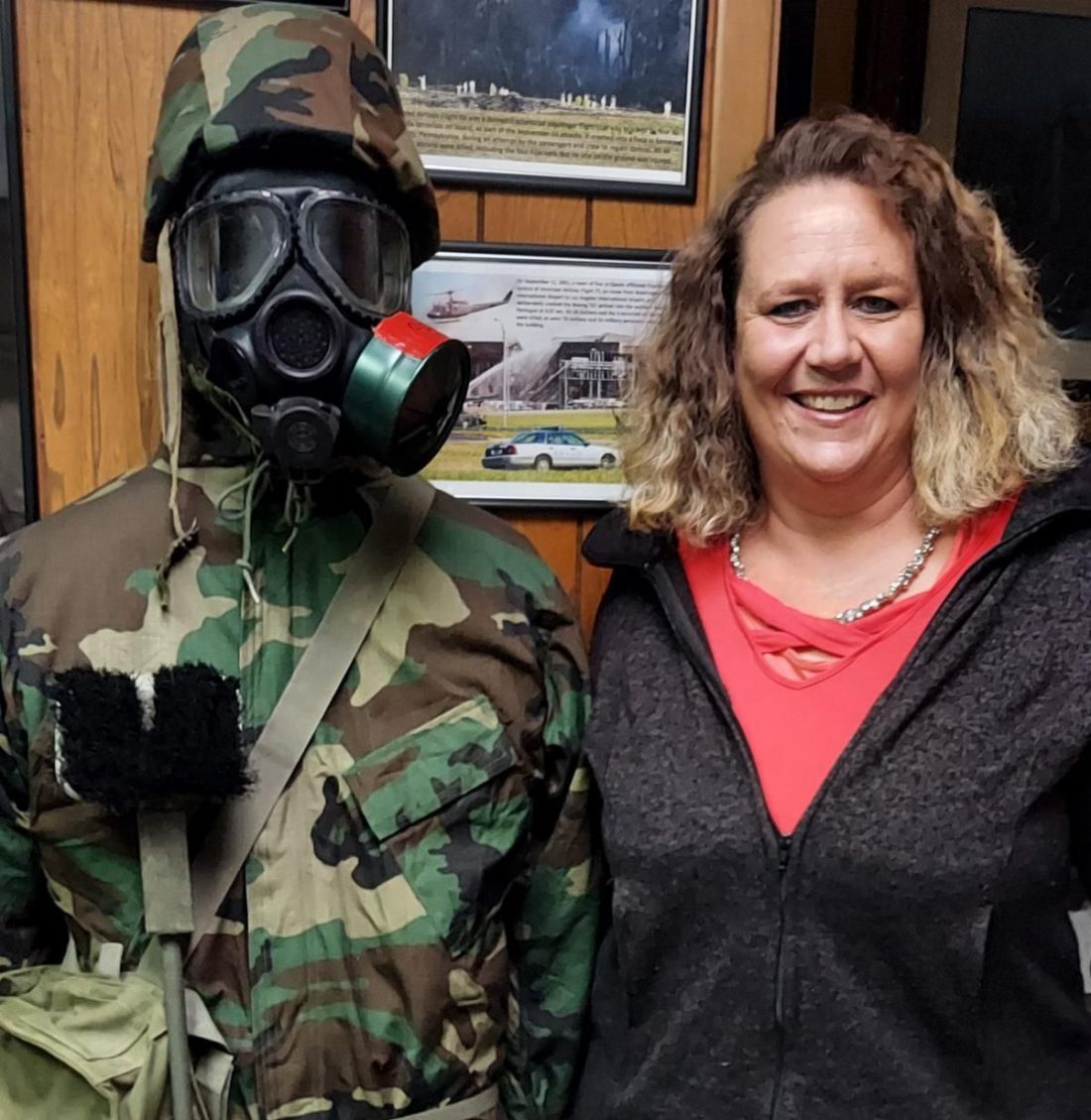By Miriam Bradley
The Veterans History Museum of the Carolinas in Brevard doesn’t shy away from the toll that war takes on those who fight.
Founded just six years ago by Emmett Casciato, the museum highlights America’s modern wars from World War I to the war on terror.
“I never served a day in my life, and it was my way to give back to those who did,” Casciato says “I wanted to make sure our military history was intact and not forgotten. And I wanted to make sure everyone knew what these people really went through.”
Beyond the exhibits of uniforms, vehicles, weapons, letters and photographs are the volunteers who can tell their stories, too. More than 90% of the volunteers are veterans or married to one, according to Janis Allen, director of communications for the museum.
In the exhibits, the human toll is apparent. For example, in the World War I exhibit, a documentary by North Carolina Humanities mentions the soldiers who, out of desperation, shot themselves to get out of unbearable conditions. They were publicly shamed by being forced to wear armbands in yellow — for cowardice — embossed with SIW, for self-inflicted wound.
Further on, standing amid the war on terror exhibit, one sees a photograph of Sgt. Jared Adam Best from Haywood County. He joined the Army at 17, was deployed to Iraq and reenlisted so he could be there for “his guys.” According to the display, “he learned just how hard it can be to adjust to civilian life, how hard it can be to forget the horrors of war. On New Year’s Eve 2016, he died by suicide resulting from PTSD from serving in Iraq and Afghanistan.”
Kristal Brown of Brevard can understand Best’s struggles. An Army medic, she arrived in Iraq on Jan. 16, 1991, as part of Operation Desert Storm, just as the bombing began. During her six-month deployment, she endured bombings, threats of being gassed and sexual assault. After getting out of the military, she floundered. “I tried to live an ordinary life, but I just wasn’t the same,” she says.
Different names, all the same
The lasting effects of witnessing the war’s brutality are nothing new. The first documented reference to post-traumatic stress disorder symptoms was circa 2100 B.C. in the Epic of Gilgamesh, which describes symptoms Gilgamesh suffered after seeing his friend killed.
In the late 1600s, these symptoms were called “nostalgia” by a Swiss physician, and this name stuck until after the Civil War.
During World War I “shell shock” gained more attention as the condition became more widespread. First attributed to concussions caused by exposure to shelling, it was renamed “neurasthenia” (a type of nervous breakdown) when it occurred in soldiers who never experienced shelling. After World War I, these soldiers were subjected to traumatic treatments intended to shock them out of their symptoms. Driving this extreme treatment was the belief that these symptoms were caused by a lack of courage.
In World War II, it was called battle fatigue, combat fatigue and combat stress reaction and believed to be caused by long deployments. Treatments included insulin shock therapy, hydrotherapy, electric shock therapy and even lobotomies.
Help for many Korean War veterans suffering from PTSD was minimal. Doctors prescribed only rest with the hope symptoms would diminish over time.
It wasn’t until Vietnam War veterans pushed for better treatment that PTSD was introduced into the Diagnostic and Statistical Manual of Mental Disorders in 1980.
Evolution of treatment
Treatment for PTSD now includes psychotherapy and medication. Group therapy and support groups are helpful for many veterans, giving them a safe place to share their experiences with those who understand.
The importance of available care is clear. While treatment has improved, in 2020, suicide was the 13th-leading cause of death among veterans overall, and it was the second-leading cause of death among veterans under age 45, according to the 2022 National Veteran Suicide Prevention Annual Report.
Brown is grateful for the group sessions she attended through the Charles George Department of Veterans Affairs Medical Center in Asheville but wishes there was a local group. “There aren’t a lot of soldiers in this area, or if there are, they are older. Somewhere to go and talk about your battles (and) how you survive this PTSD is helpful. Being over in Asheville with those ladies, it helped me learn how to process, but I need reminding. Having a support group here (in Brevard) would be very beneficial.”




Before you comment
The comments section is here to provide a platform for civil dialogue on the issues we face together as a local community. Xpress is committed to offering this platform for all voices, but when the tone of the discussion gets nasty or strays off topic, we believe many people choose not to participate. Xpress editors are determined to moderate comments to ensure a constructive interchange is maintained. All comments judged not to be in keeping with the spirit of civil discourse will be removed and repeat violators will be banned. See here for our terms of service. Thank you for being part of this effort to promote respectful discussion.